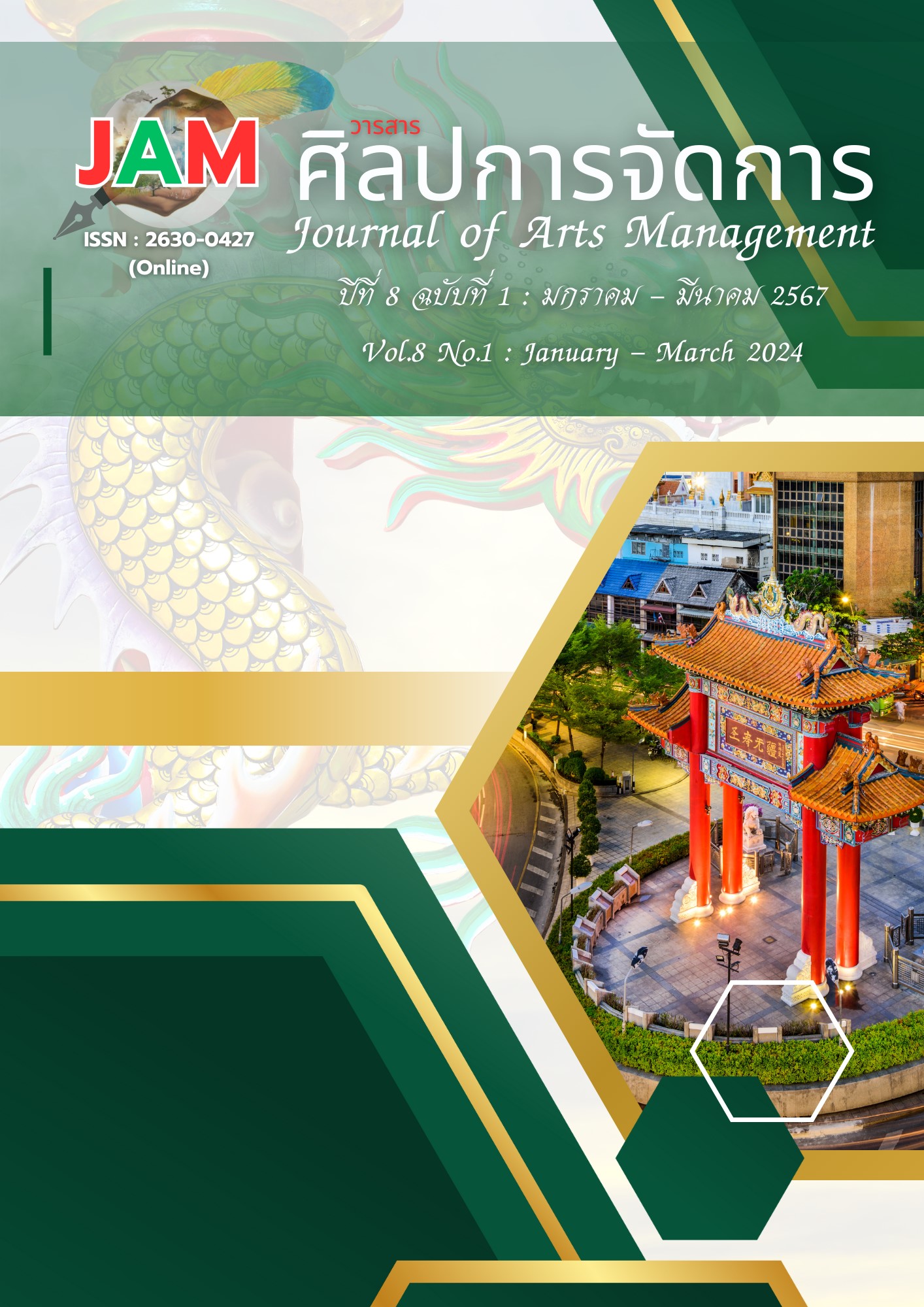Increasing Agro-ecotourism Potential as a Learning Resource in Suphan Buri Province
Main Article Content
Abstract
Development guidelines that are appropriate to the overall context of agro-ecotourism as a learning resource in Suphanburi Province can be classified into four approaches. The first guideline is setting a plan for developing agro-ecotourism as a learning resource in Suphanburi Province in both short-term and long-term in order to drive continuously and for the clarification of the various activities’ arrangements. The second guideline is setting the route of tourism clearly, providing a city plan for tourism, and specifying important tourism landmarks to create the tourist attraction’s identity. These could help the tourists realize the details of the characteristics, area size, and the appropriate visit time of tourist attractions. The third guideline is promoting participation roles because strengthening collaboration is like the main key engine in setting the direction frame and driving the management dynamic beneficially. In addition, this can force the integration of various organizations to upgrade tourist attractions to be learning resources. The fourth guideline is to determine the important information technology for tourism, such as weather information, area geography, etc., that will be useful in travel planning for tourists and for farmers in that area. According to all four guidelines, the agro-ecotourism destinations will be ready to be learning resources. In addition, the tourist destinations’ potential will motivate and encourage the tourists to travel. This will increase the income for farmers and create jobs for local people and households with these learning resources. In addition, increasing the agro-ecotourism potential as a learning resource in Suphanburi Province can create the value of tourist attractions and sustainability in tourism and increase the value of the economy and society in Suphanburi Province as well.
Article Details

This work is licensed under a Creative Commons Attribution-NonCommercial-NoDerivatives 4.0 International License.
Views and opinions appearing in articles in the Journal of Arts of Management It is the responsibility of the author of the article. and does not constitute the view and responsibility of the editorial team I agree that the article is copyright of the Arts and Management Journal.
References
Community Organization Development Institute. (2022). Development of Strengthen Communities to be Self-Reliance and Keep Pace with Change using Integrated Operations. Sahamit Printing and Publishing.
Department of Agricultural Extension, Ministry of Agriculture and Cooperatives. (2005). Handbook of Administrative and Management of Agricultural tourism. Ministry of Agriculture and Cooperatives.
Department of Agricultural Extension, Ministry of Agriculture and Cooperatives. (2019). Promotion of agricultural tourism. Ministry of Agriculture and Cooperatives.
Department of Tourism. (2021). Guide to evaluating quality standards of agricultural tourism destinations. Ministry of Tourism & Sports.
Designated Areas for Sustainable Tourism Administration (Public Organization). (2018.) Global sustainable tourism criteria: GSTC. COCOON & CO.
Designated Areas for Sustainable Tourism Administration (Public Organization) (2022). Handbook of Standard Practice of Sustainable Tourism Management. COCOON & CO.
Esichaikul, R., et al. (2018). Competency development for participative management of hot spring attractions in Lanna tourism cluster. Thailand Science Research and Innovation.
Mangkhang, C. (2020). Community potentials and citizen participation in ecotourism management towards learning resources on community enterprise of Ban Mea Kam Pong, Chiang Mai. Mae Fah Luang University.
Na Songkhla, T. (2013). Model of Agricultural Resources Management for Sustainable Agro-tourism in Changklang District, Nakorn Si Tammarat Province. Songkhla Nakarin University.
Office of the National Economic and Social Development Council. (2017). The Twelfth National Economic and Social Development Plan (2017-2021). https://www.nesdc.go.th/ewt_news.php?nid=6420&filename=develop_issue
Office of the National Economic and Social Development Council. (2023). The Thirteenth National Economic and Social Development Plan (2023-2027). https://www.nesdc.go.th/main.php?filename=plan13
The Government Public Relations Department. (2023). UNESCO certified Suphan Buri as a “Creative City of Music” for 2023.
https://www.prd.go.th/th/content/category/detail/id/31/iid/229807
Tourism Authority of Thailand. (2018). Tourism or the tourism industry is closer than you think. https://tatreviewmagazine.com/article/community-based-tourism/
United Nations. (2023). Sustainable development goal 11 sustainable cities and communities. https://thailand.un.org/en/sdgs/11


